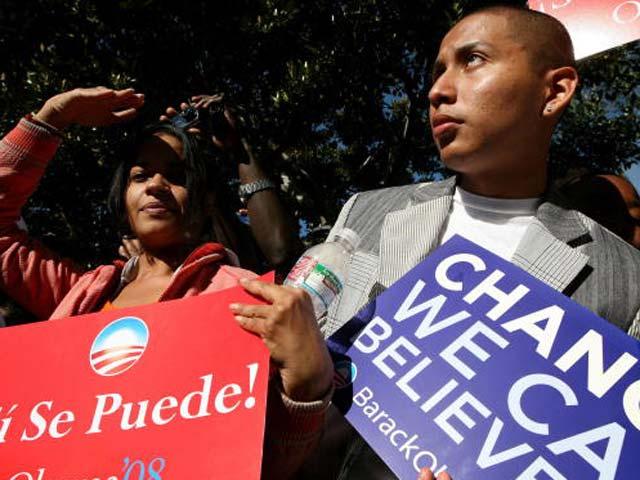It’s a New Year, a new Congress on January 3rd, and another 4 years for President Barack Obama. Here is a look at 5 issues which are front and center for many Latinos.
Immigration reform – Millions of Latinos went to the polls with immigration reform on their minds, and as many groups have said, they expect this is the year for action. Juan Sepulveda, Senior Advisor for the Democratic National Committee who has also worked in the Obama administration, says he really feels that compared to four years ago, there is momentum now. ”When we first came into office, all the challenges were so huge, dealing with the recession and the Recovery Act, and ensuring health care legislation,” Sepulveda says. “Now, I think comprehensive immigration reform is something we’re hoping we can get going shortly after the inauguration,” Sepulveda says, adding he realizes it is a topic which should be dealt with quickly.
Republican strategist Danny Vargas agrees with Sepulveda that it can be done. ”I’m probably a bit ‘pollyanaish,’ but I’m almost seeing immigration reform as a fait accompli; I think Republicans have seen the writing on the wall, and there has to be some immigration reform,” says Vargas. Stay tuned.
Health insurance for Latino families – Now that the Supreme Court upheld theAffordable Care Act and President Obama was re-elected, “making sure that the health care exchanges are up and running by early 2014 and ensuring 9 million additional Latino families is a massive undertaking,” says Sepulveda. Political scientist Angelo Falcon points out, however, there are still salient issues in the Latino community. ”We have to keep our eye on the ball regarding the fact that some Latinos are not eligible,” he says. Undocumented immigrants are not eligible for the exchanges or expanded Medicaid.
Education funding – “We need to push for more dollars for early childhood education, as well as more dollars and resources for community colleges, which are key institutions for Latinos,” says Sepulveda. Latino education advocates such as Julian Vasquez Heilig worry about state cuts in school funding as more Latinos enter the classroom. “Texas cut 5.4 billion dollars from their budget two years ago, yet the majority of growth in student population has been among Latino students,” he says. Excelencia in Education’s Deborah Santiago says expanding resources to Hispanic Serving Institutions (colleges with over a quarter Latino enrollment) is an important way to ensure that the growing Latino college-age population continues increasing.
Economic “roadblocks” and job creation – ”We need to bring back more stability to the housing market,” says Republican strategist Vargas. ”The reality is banks and mortgage holders are still not writing off mortgages which are underwater, while banks are seeing record profits,” Vargas adds, saying this has kept many Latino families from getting ahead. Reforming the tax system and streamlining regulations can help Latino business owners. On the other hand, says Sepulveda, increasing infrastructure spending and encouraging manufacturing growth are two areas which can have potential benefits for increasing Latino employment, he says.
Increasing Latino political clout – ”There are so many interconnected issues, such as Latino poverty and high unemployment, but the larger question is what role will Latino leaders and politicians have in these important discussions,” says Angelo Falcon. “Right now during this whole fiscal cliff debate, I saw a lot of wheeling and dealing but I didn’t see Latinos front and center,” Falcon adds.
Falcon says now that the election is over, the focus shifts from politics to action. ”What will Latino leaders do about all these important issues we have been discussing? Are we going to be at the table, or will we be passive observers,” says Falcon. “We have to stay critical, and vigilant.” by Sandra Lilley [NBC]


